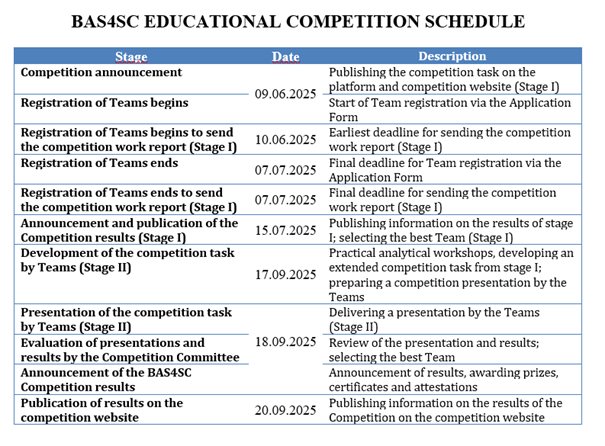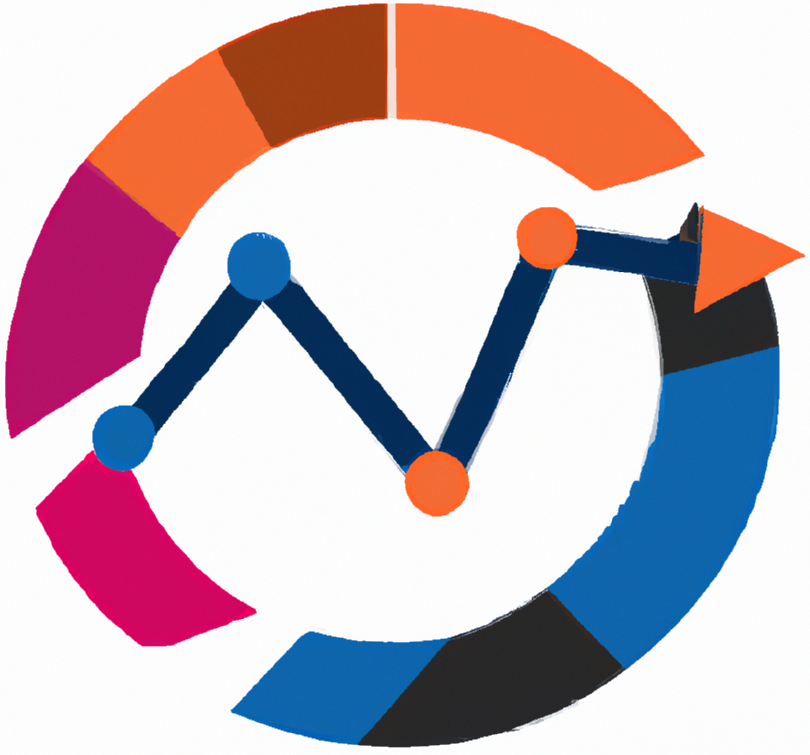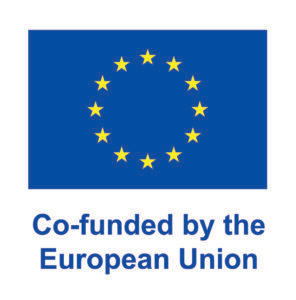Educational Competition Schedule
The BAS4SC Educational Competition is structured as a multi-stage learning and competition experience that spans several months. Each stage is designed to gradually develop participants’ analytical, technical, and teamwork competencies, combining theory with practice in a dynamic and engaging way.
- Preparation Phase
During this phase, students and academic mentors receive introductory materials and guidelines about the competition format, assessment criteria, and the key analytical tools to be used. Participants are encouraged to form interdisciplinary teams and familiarize themselves with topics related to logistics analytics, business intelligence, and sustainable supply chain management.
- Training and Workshops
Before the competitive phase, Project participants take part in a series of online and in-person workshops led by industry experts and academic instructors. These sessions focus on practical applications of data analysis, visualization techniques, and decision-making tools, helping students to strengthen their skills in working with real datasets and BI systems.
- First Round
Teams compete solving analytical tasks based on real or simulated logistics data. The best-performing teams advance to the second stage.
- International Final
The competition culminates in the Final Event. Finalists present their analytical solutions and strategic recommendations to an international jury composed of academic experts. This stage tests not only analytical precision but also creativity, teamwork, and presentation skills.
- Feedback and Reflection
After the finals, all teams receive feedback from the jury and mentors, allowing them to reflect on their results and identify areas for further growth. The event concludes with networking opportunities, enabling students to connect with peers and educators.

Organizational notes
- All dates may be subject to minor changes - the applicable dates will be confirmed by email and on the competition website: https://bas4sc.put.poznan.pl/
- In case of questions, please contact the organizer: bas4sc@put.poznan.pl

